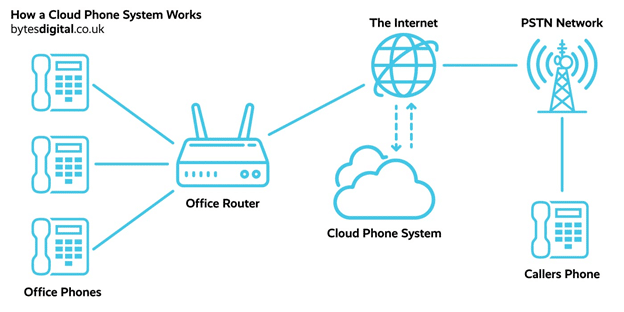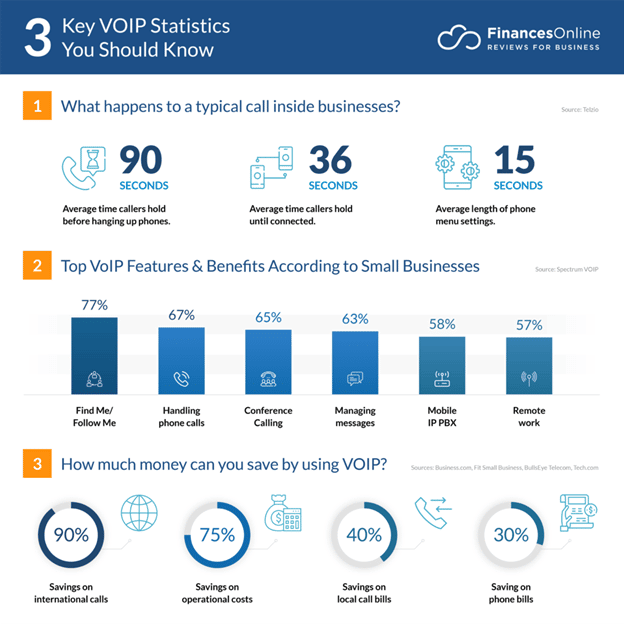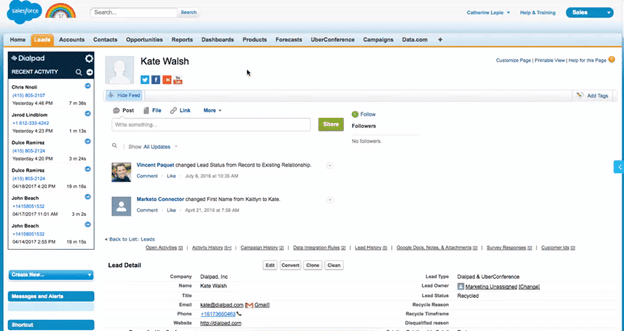Hold the phone – cloud-based systems are having a monumental impact on business, both in terms of cost and effectiveness. Telephone systems are no exception. We’ll start by pinpointing exactly what cloud phone systems are, before identifying what they can do to encourage business growth.
IMAGE: UNSPLASH
What Are Cloud Phone Systems?
Traditional private branch exchange (PBX) systems use large machines that take up space in the office premises and need a fair amount of care and maintenance. As well as that, they tend to be quite pricey to install and service.
Cloud phone systems take all that hardware out of the office equation, running communications via the internet instead. Through voice over internet protocol (VoIP, or just IP), the user’s voice is converted to digital packets and stored in the cloud, there to be accessed by the person on the other end of the call.
IMAGE: BYTES DIGITAL
As with any new system, some concerns, for example over security, surfaced at launch. However, there are ways to successfully deal with this. In any case, there’s more to a VoIP business phone system than this brief overview, of course, so let’s dig deeper.
Features Of Cloud Phone Systems
Call Forwarding, Etc.
A cloud phone system can do all that a traditional setup can, like call forwarding, automated outgoing messages, roaming for response etc. But it can do so much more.
Interactive Voice Response (IVR)
IVR revolutionized organizational efficiency when it arrived. It takes the OGM of an answering machine but makes it interactive so that a caller can be put through directly to the right person, or have their query dealt with by an automated service. The savings in terms of personnel spending are huge.
AutoCLIP
This is a method by which somebody returning one of your calls is automatically put through to you rather than having to go via the ‘switchboard’.
Direct Inward Dialing (DID)
Should you wish to look like your business has a brick-and-mortar presence in a particular city or country, you can acquire a local number without having to actually have anything physically in that location.
Voicemail To Email
Your voicemail messages can be sent as an audio attachment to your email, meaning you can pick up your messages anywhere you have an internet connection.
Conference
Simplicity itself. Put the invitees’ numbers in, get the meeting going. Today’s agenda? How glad you are that you got a cloud phone system.
Advantages Of A Cloud Phone System
There are several reasons why companies tend to go for a cloud phone system, and these plus points deliver performance and cost benefits pretty much straight away. Here’s a nice graphical representation of what cloud phone systems can deliver:
IMAGE: FINANCE ONLINE
Let’s look into some of these advantages, as well as one or two others.
Cost-Saving
Firstly, next to no disruption during initial installation translates as big savings for your business. This is a huge factor when comparing on-premise vs cloud systems. Secondly, you can have as many lines as you have handsets (or laptops or desktops), without anything like the cost and trouble associated with old-fashioned PBX systems. Thirdly, calls are free to other numbers in the business. Finally, you can fine-tune exactly which level of service you need, to get a better fit for your business as you grow. This eliminates needless expenditure on services you don’t require.
Geographic Flexibility
Cloud systems deliver unprecedented mobility for the workforce. They’re no longer tied to a particular desk, a particular building, a particular town or even a particular country. Think of what this kind of mobility can do for your business.
Easy To Install And Set Up
You don’t need to decide on which room you’re going to have to lose to the big wiry boxes that used to characterize phone systems of yesteryear. All you do is go somewhere like Dialpad and sign up for the service that suits you.
Your biggest challenge here is to ensure that your existing network is fit for the task. It has to have the bandwidth necessary for the cloud phone system to work properly.
Then, once you’ve got your hands on the system, it can be set up remotely, with clear guidance available for you every step of the way. You can either do it via self-teaching or with the assistance of the service team. Such is the intuitiveness of most of these systems that you don’t have to wade through endless software testing blogs to get your head around things.
Maintenance is relatively straightforward too, certainly more so than in the days of copper wires, and can often be done remotely.
Easy To Scale
So your operation’s expanding and new staff are coming on board, you can accommodate them on the system with little trouble or expense, whether you’re giving them an extension from your number or giving them a whole new number.
Audio Improvement
Cloud phone systems deliver incredible HD audio. As well as the voice reproduction quality, most systems offer a sound masking facility that does away with noise extraneous to the call itself. This is rather handy in a call center, for instance, or any busy office where volume can be a little intrusive.
Communication Unification
It’s not all about calls. Communication consists of so many more routes in the modern workplace, and cloud phone systems can assist with staying on top of them all. Instant messaging, video chat, video conferencing, and voice calls can all be managed from one easy-to-use interface.
IMAGE: DIALPAD
To read more about the advantages of cloud phone systems, click here.
So, What Could Cloud Phone Systems Do For You?
There are some models of business for whom a cloud phone system is commonly considered to be a superb choice.
Examples include businesses that don’t want to invest in PBX maintenance or businesses that are just starting out and don’t have a crystallized idea of what their future capacity will need to be, or seasonal operations with big fluctuations in communication traffic. Other examples include, at one end of the scale, a company that operates at multiple sites, and at the other, a company without a physical location at all.
In truth, there are few businesses that wouldn’t benefit from cost-savings married to massive leaps forward in communication effectiveness. This is why the VoIP market is expected to reach $183.7 billion by 2027. So, if you haven’t looked into cloud phone systems already, what are you waiting for?





COMMENTS